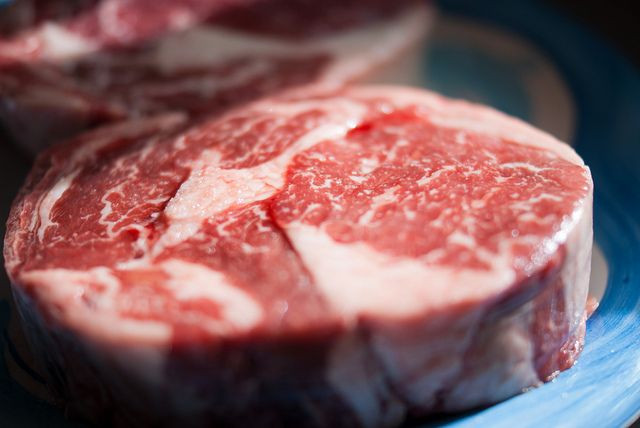Get Stuffed: Scientists Uncover Why High Proteins Foods, Like Meat And Dairy, Make You Feel Fuller

You’ve heard it before and now it’s scientifically proven. Protein, in fact, does make you feel fuller, researchers at Purdue University found. However, their new study did not answer two other key questions: How much protein continues this feeling for, say, an hour, and when is it best to eat protein?
Google “best diet” and the helpful algorithm will return 405,000,000 results, startling in their diversity and multitude of names. Some recall a beautiful place filled with beautiful people living beautiful lifestyles (Beverly Hills Diet, Sonoma Diet). Some are named for specific regions of the world, evoking ancient cultures and Grandma’s home cooking (Mediterranean Diet). And other names echo a period in history, returning you to a distant, less food-abundant past (Paleo Diet). This list can go on.
Along with many names, the world of dieting is also rife with advice and tips. "Never eat after 8 p.m., you’ll gain weight." "You must drink at least eight glasses of water every day to lose the pounds." "Two words: Grapefruit juice." And another gem that has stubbornly hung around: “Protein fills you up, keeps you from feeling hungry.”
But is this true?
Surprisingly, no one has ever tested this on a large scale so Dr. Richard D. Mattes, Director of Public Health at Purdue, and his colleagues set out to do exactly that. They searched multiple databases for studies evaluating the effect of increased protein intake on fullness ratings. Because individual studies may be conducted in small populations or with different approaches, interpretation of the results can be challenging, noted Mattes, a lead investigator, and his co-authors. To address this, they combined the results of multiple research papers and used a variety of statistical approaches to interpret and analyze the accumulated data.
Their conclusion does not provide much of a jolt: Eating protein is related to satiety in the short term, they say. Even “modestly higher” amounts of protein may help you feel fuller between meals, though the team could not determine an actual formula, say grams of protein per BMI for men or women. They also say it’s unclear if the results hold up over the long term or if, say, your body gets used to the added protein.
However, if you’d like to put this into practice — if you’re on a diet and scaling back on calories and don’t want to feel hungry — the researchers suggest you eat additional protein in small increments as a first step. Protein-rich foods consist of dairy (eggs, milk, and yogurt), meat (steak, pork chops, lamb), fish (tuna, salmon, halibut, octopus), fowl (chicken and turkey), legumes (beans, peanuts, and lentils) and some grains (wheat germ and quinoa).
Source: Dhillon J, Craig BA, Leidy HJ, et al. The effects of increased protein intake on fullness: A meta-analysis and its limitations. Journal of the Academy of Nutrition and Dietetics. 2016.



























